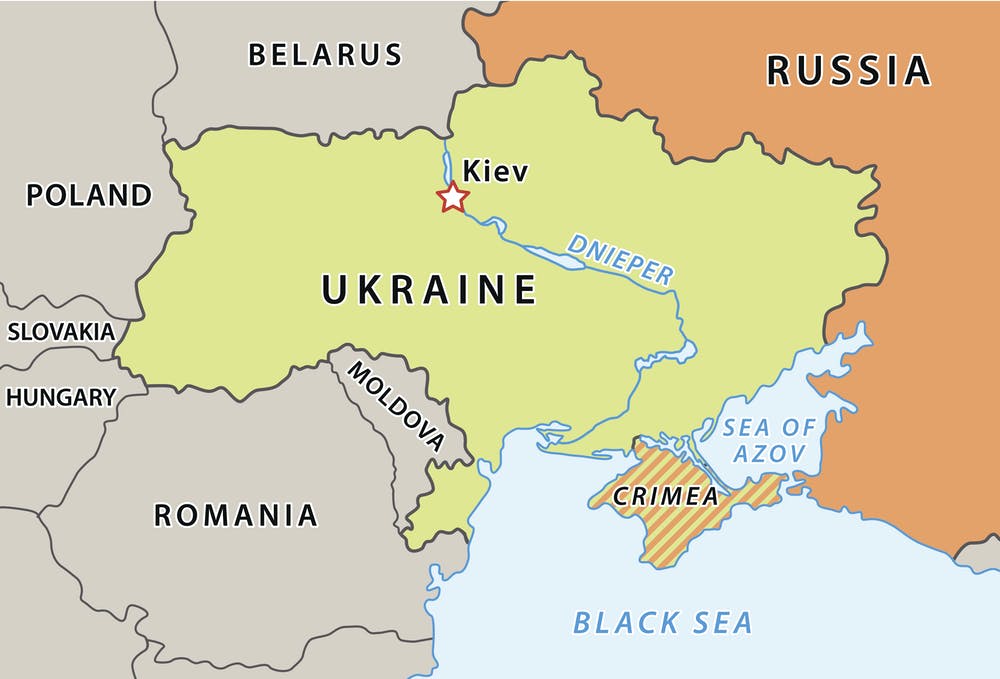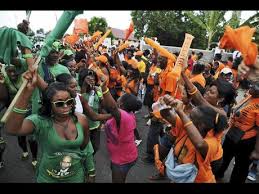
On the 24th of February, 2022, what had been a low intensity conflict between a central government and separatist forces, evolved into a full scale war that pitted two nations against each other. In one corner of the ring lay Ukraine, a country with a fledgling democracy, attempting to gain prosperity and forge its own destiny in peace. One the other side is the Russian bear, led by a dictator that had finally revealed for the whole world to see his megalomaniac tendencies. The Ukrainian struggle against Russian domination is a complex story to tell, one that would require far more detail and scrutiny, one going back years with differing perspectives and conclusions. However, one thing that is beyond a doubt, is that in this new phase of the Russo-Ukrainian conflict, though it is hardly a week old, hundreds, if not thousands are already dead, with hundreds of thousands more displaced. Lives and livelihoods are being destroyed, and it should not be ignored.
It is with this backdrop that I turn to the issue of this article. With war in Ukraine raging, many individuals have found themselves suddenly caught in the crossfire. Some of the most troubling of these stories are those of students that are, or rather were, studying in the country. With the small-scale conflict in the Donbass spilling over into something far greater, life in Ukraine is no longer able to carry on as it did before. Now schools have been shut down, local transport systems find themselves struggling under the newly found strain, and the simple common things that people need to survive, such as food, water, and shelter are now in short supply. For the students attempting to find a path to their dreams, they were now caught in a nightmare.
Of those students, there were a small number of Jamaicans in their ranks. At the time of the Russian invasion of Ukraine, over twenty Jamaican students were in the country engaged in their studies. Prior to Putin invading Ukraine on the 24th, with tensions flaring between the two Nations, the Minister of Foreign affairs, the Honourable Kamina Johnson Smith, urged Jamaican citizens in Ukraine, primarily those studying there, to leave the country at once. However, virtually all the students decided to remain where they were. Ukraine had been subject to multiple false alarms before, and in the country the Political grandstanding on both sides is not new. It seems that many Jamaicans in Ukraine also adopted the local “this too shall pass” mentality. This however, has come to their detriment.
Arguments have been made that the students in Ukraine frankly did not have a choice. To a certain extent, this is true. Several Jamaican students in the country were on the brink of finishing their courses, and simply could not afford to leave, unless they wished to start over their entire program. For others, the reasoning was a bit more personal than academics. Jamaicans at home by now are all aware of the infamous story surrounding the Ukrainian cat, which has been shipped from Ukraine to Germany, where it will be tested for rabies, before potentially being sent back to Jamaica, all at the average Jamaican taxpayer’s expense. All this madness has led to many wondering if such a Ukraine venture was even worth it. As it turned out, it was. Research has revealed that the cost for a year’s study in Ukraine is 1/6th of the cost for a year in Jamaica. With such a background, is it any surprise that people have chosen this alternative? No. The question is, should they have to?
Jamaicans have always made a large deal about being able to stay in the country to support the country, and for good reason. However, many of the nation’s most promising individuals go to study abroad, and often they simply do not return, taking with them the valuable resource of experienced and capable human labour with them, forcing the country to make do with second best. Many people leave not due to the dislike of their country, but rather the cost and struggles to thrive in such an environment. The truth of the matter is, that Jamaica is not always suitable for those that have high ambition and seek to make a name for themselves. This isn’t to say that it is impossible to do well in the country, just that it is exceedingly difficult. And if there is one thing all Jamaicans can agree on, though we are hardworking people, we often do not hesitate to take the easy way out.
At the end of the day, it comes down to discipline, not party politics and handouts. In the 1970s, then Prime Minister Michael Manley advocated for and pushed a strong socialist agenda, which greatly improved the country in terms of health, education, and welfare for the poor and destitute. However, the thing with socialism is that it can only truly work if one has the money to provide for all these great things, and that was exactly what Manley lacked. His agendas frightened local and foreign businesses, which in turn left the country and withdrew their investments, forcing Manley to fall deeper into the debt hole to continue his reform programs. The rest is history.
The fact of the matter is however, that it does not have to be this way. Jamaica is not lacking in POTENTIAL In fact, the country of Singapore, now a first world nation and financial hub, modelled its development off of early independent Jamaica. The difference between the Singaporeans and ourselves is that they had faith in their government, and the discipline to follow their guidelines which enabled the island nation to succeed where we have failed. So when we look around us and complain of the issues facing ourselves as a people, we need to understand and realize that in a way, we as a people are the issue. I wish to leave that with you all today. For meaningful reform to happen in the country, meaningful reform must happen within ourselves.




Nate the Noble, its been widely reported, and repeated by you, that Singapore modelled its development on Jamaica. I cannot find evidence of this anywhere, infact the Prime Minister on his visit to Jamaica during the 1960’s in his now widely published book, Third world to First, was not very complementary of our country.
Await your clarification